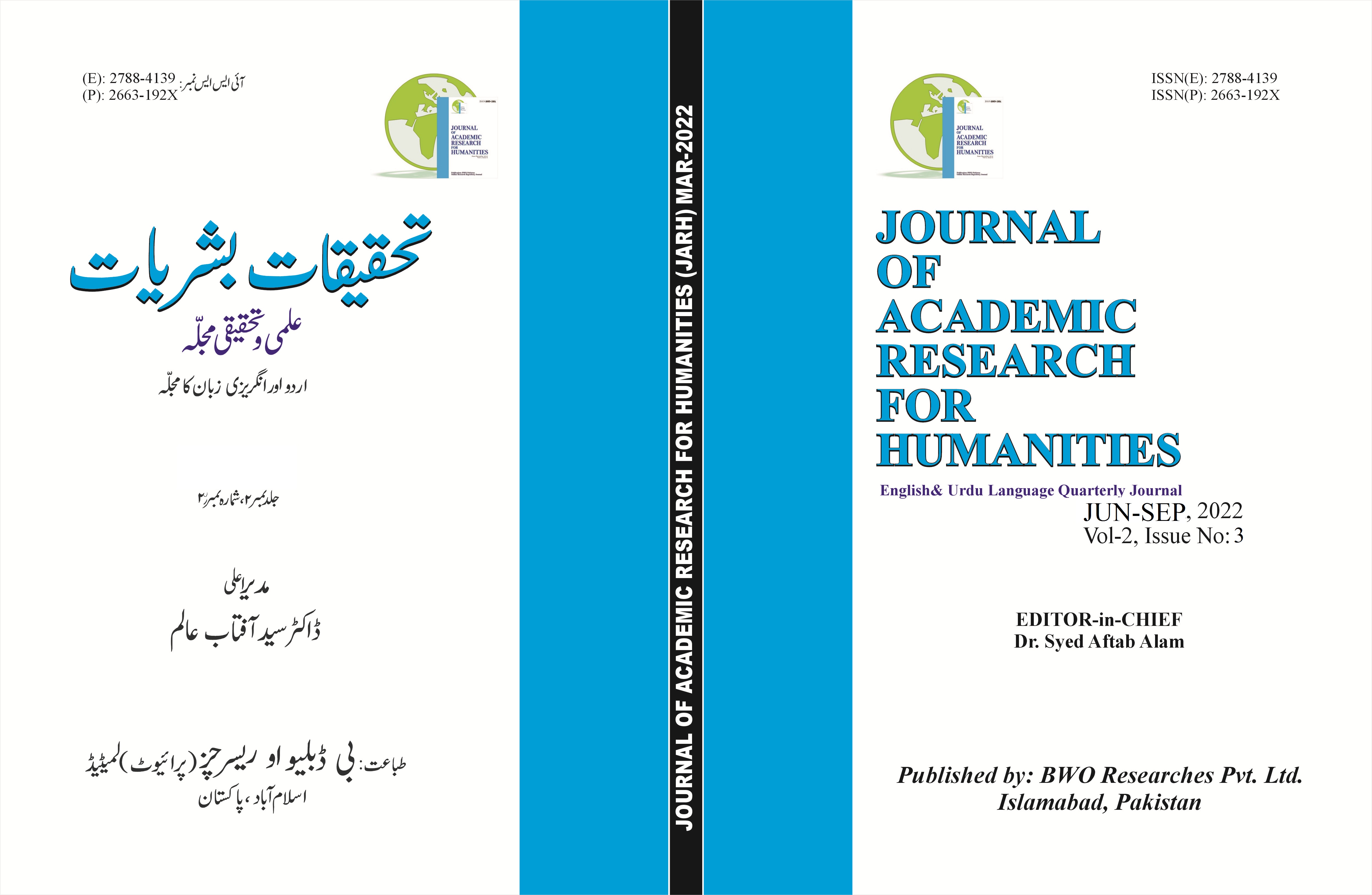HUSSAIN: A SYMBOL OF RESISTANCE TO AUTHORITARIANISM : A REVIVAL OF ISLAM IN THE LIGHT OF IQBAL’S POETRY

Abstract
REVIVAL OF ISLAM IN THE LIGHT OF IQBAL’S POETRYThe poetry of Iqbal is replete with various symbols including an eagle, sparrow, Mullah, and Mard-e-Momin to inspire a specific class, particularly youth. Hussain, a prominent personality of Islam who stood against evil and sacrificed almost everything, became a symbol of resistance to those who don’t have enough power against the malicious. Iqbal, like many other writers, used the name Hussain as a symbol of resistance against evil and trepidation. His poetic work, by realizing the intensity of the situation where Muslims were facing adversities, provided them with a beacon light to achieve the desired ends. A question that how his work, mostly seen in the context of religious reverence and Heroic admiration, found the said topic as a stimulus to the political and democratic goal. This paper endeavours to explore the roots of Iqbal’s poetry on Hussain as a symbol of the saviour of the political institutions of Islam and his struggle to resist the despotism of Yazid and defend the caliphate. This paper extensively cites the Poetic works of Iqbal on the contribution of Hussain and his companions to challenge the autocratic rule of Yazid. It will further deliberate on the lessons learnt from the great sacrifice of Hussain. Iqbal’s philosophy on the spirit of the Karbala movement is also examined by distilling Iqbal’s poetic works from merely a Greco-Roman-styled heroic poetry inspired by the sentiments of Hero worship.
Keywords
Iqbal, Hussain, Democracy, Dictatorship, Resistance, Karbala Movement, Political Philosophy.
References
- Bowra, C. (1950). Heroic Poetry. London: Macmillan & Co Limited.
- Carlyle, T. (1831). Sartor Resartus. London: Chapman & Hall Publishers.
- Dagher, A. (2012). “The Epitome of Justice and Tolerance”, Bayonet.
- Fariyan, R. (2000). Safawiyyah dar Arsah-ye Din, Siyasat, Vol. 1. Islamic Unity Society, July 17, 2016.
- Iqbal, M. (1994). Kulliyat-e-Iqbal (Farsi). Lahore: Iqbal Academy Naqoosh Press, 1994.
- Iqbal, M. (1992). Bang Dara, Lahore: Iqbal Academy.
- Iqbal, M. (1960). Bal-I-Jebrail. Delhi: Maktaba-eJammia Publishers.
- Iqbal, M. (1953). Rumuz-i-bekhudi “Masteries of selflessness”. Lahore: Iqbal Academy.
- Muhammad M. M. (1993). Iqbal Review. Lahore: Iqbal Academy Pakistan.
- Manzoor, S. R. (2014). Unique sacrifice of Imam Hussain for Humanity. Bloomfield: massage of Peace INC., Payam-e-Aman Publishers.
- Qureshi, W. (1994). Iqbal Review. Lahore: Iqbal Academy Pakistan.
- Qureshi, W. (1994). Iqbal Review Lahore: Iqbal Academy Pakistan.
- Raza, A. T. & Hussain, M. (2019) “From Imam Hussain’s Arrival in Karbala to His Martyrdom”, International Journal of Multicultural and Multireligious Understanding, Vol. 6, No. 4. 27
- Raza M. & Bagheri, F. (2019). “Innovative Martyrdom in the Poems of Allama Iqbal”, Journal of Subcontinent Researches, Vol. 11, No. 37.
- Suheyl, M. U. (2001) Iqbal Review. Lahore: Iqbal Academy Pakistan.
- Simons, A. (1991). Symbolist movement in Literature. New York: E.P Dutton & Company.
- The News, April 29, 2016. Karachi.